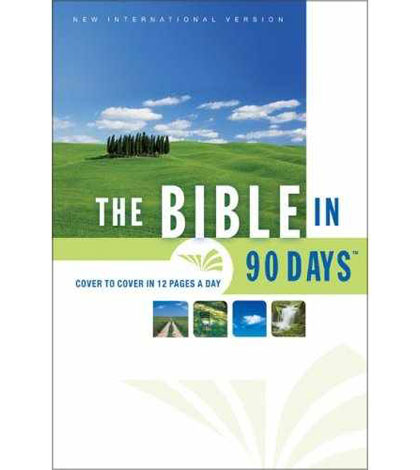Week 5 of our Bible in 90 Days Discussions. Please joins us as we read along. For more details on reading the Bible in 90 days, please visit our main page.
- Lots of people utilizing Youtube to listen to the text. Search for NIV and the Book/Chapter name to find the audio.
- Thought on Chronicles? Why is it repeating? Ezra may have written — wanted to make sure of an accurate record — who was whose son and the identified clans and lineages.
- Note, though, these order of books is not chronological order but it seems more they are more of telling of a story. The Greek word used as the title for Chronicles means the things left to the side – suggesting maybe Chronicles should have come at the end of Old Testament and additional information.
- Ezra is suggested to be one writer.
- Chronicles helped reinforced the social structures and lineages.
- Second chronicles might be easier to read because it was focused on Judah
- Possibly answered questions about the king that had leprosy, some backstories were explained
- The kings reigns were much shorter.
- Thoughts of repetition in Chronicles to stress importance of the sections or passages.
- There may have been repetition between Kings and Chronicles because it’s important information so they wrote it again because of the importance. Jews had traveled and been in and out of different countries and this is a way to recapture and reteach.
- One theory is that the Jews had traveled, been slaves, moved, and this was a way to recapture and reteach the current population about the their history.
- Chronicles filled in gaps in Kings for example in Kings it mentioned a king with leprosy but Chronicles explained why he got leprosy and it was easier to read 2 Chronicles — just focused on Judah so it didn’t skip back and forth between Judah and Israel.
- Chronicles would be at the end if you ordered the Old Testament chronologically.
- In the current way, it’s telling the story in a different order.
- Specific themes in Chronicles.
- Many were hardheaded, “stiff necked”, stubborn, selfish.
- Comparable to us right now, examples repeated with no lesson(s) learned.
- There were positive messages — forgiveness – Manasseh who had done wrong repented and God forgave him. Redemption.
- Queen of Sheba — character that has stayed with many Christian traditions throughout the years. How much she brought to Solomon was a lot. Imagine whole caravan to bring all of that stuff. Her country must have been wealthy. One of the rare female leaders mentioned. And, interesting it’s a case of a woman testing a man. Think she had her eyes on Solomon. Some sources suggest King Nebuchadnezzar may have been the fruit of Solomon and the Queen of Sheba or there was some liaison between the two. There’s lots we don’t know about these characters.
- Question about the precursors for the coming of Jesus.
- “The One that will come” possibly in Ezra.
- References that David will have a throne forever, possible foreshadowing Jesus.
- As Jesus is from the lineage of David.
- You will have a throne forever / descendants forever without stating you need to stay faithful to God.
- King Hezekiah – interesting character — as read about him it felt good — did a lot of good things. Back then they didn’t really have a choice about becoming king but not all the kings understood what that responsibility meant and what they needed to do to lead and Hezekiah understood that and was not afraid because he trusted in God… as human beings we are fearful of the unknown. He led by example. Stayed on path. He also celebrates Passover with people who are unclean – showing people don’t have to be technically clean but it’s about a willingness of the heart.
- People without choice to become king.
- From lineage comes the kingship.
- In second chronicles there seemed to be more connections between God and other peoples who were not Israelites.
- Other things of note:
- A lot of tearing down and building up.
- All the musicians — male and female singers.
- Searching records for family members — some not found. Importance of records.
- God’s connection with other nations — King of Egypt telling King Josiah that God sent him.
- 2 Chronicles 15:1-2 — King Asa — best summarizes chronicles – “The Spirit of God came on Azariah son of Oded. He went out to meet Asa and said to him, “Listen to me, Asa and all Judah and Benjamin. The Lord is with you when you are with him. If you seek him, he will be found by you, but if you forsake him, he will forsake you.”
- More prophets mentioned in Chronicles warning the kings repeatedly. References to the prophet Isaiah come in and out.
- Random stories that seemed to come up in the reading.
- Liked the story of finding the Book of the Law. Exciting to see them so excited about finding it and then doing it.
- Starts with 12 tribes but it seems to become one tribe.
- Why was there so much detail of the Temple structure? — the grandeur…also to show it is a special place and its importance and how central it was.
- King Josiah confronts Pharaoh in Egypt, Pharaoh says “God has directed me to do this, so stand down.”
- References to musician and male/female singers.
- Searching the family records for their shares, when none are found they are “unclean” and not of the tribes anymore.
- Second Chronicles has more prophets, warning the Kings not to stray, but the prophets were ignored.
- Messengers were sent.
- Isaiah came into the story and left out quickly. We will hear a lot more from him later.
- “The gifts I have given you” with the knowledge to build.
- A comment on The Levites as faithful.
- They were the chosen priests.
- Had a very special place, they had it good as the keepers of the ark and the tent of meeting.
- Ezra — His prayer — Think about despite everything they’re going through, focusing on the blessing of God giving them a remnant and being thankful. Humble type of prayer. First time in reading we see the writing in the first person — first 2/3 in the 3rd person then it moves to the first person. Nehemiah was in the first person but it seemed he was tooting his own horn.
- God granted favor to a lot of people and then they strayed but seemed like Levites were very faithful to God throughout. Whatever God told them to do they did it. Their position — given what they needed by the tribes. They had a special place from the beginning. God was still merciful to some of those who sinned but not all of them.
- Ezra 7:27 Moves to first person
- Ezra 9-10 Intermarriage: STRONGLY opposed to this idea. Exile the exiles for intermarriage? Threatens that anyone who is guilty needs to show up or otherwise forfeit their property Ezra 10:8, Gathers everyone Ezra 10:9 in the rain.
- Intermarriage — In response to Ezra’s prayer — sent them all away. Think about what that meant to women at that time and their children – may have been a death sentence. Was there an opportunity to convert? Ezra 10 — still hope, now let us make a covenant and in accordance with law. Later, in Esther there is a reference to people who had converted. Ezra spurs on crowd to separate from foreign wives…But, it seems to have been a discussion by Ezra and men not necessarily God directing them as there was not a reference to consulting God and there was debate and some opposing views. There seems to be decisions by Ezra and man not God…opposition. Kept such diligent records of which priests married foreign. People got caught up in Ezra’s xenophobia. He had a great influence. Note: Ruth was a Moabite (a foreigner) — in Jesus’s lineage.
- Tearing of clothes as a symbol, what does that mean? — outer symbol of anguish and despair. Later will hear in prophets –tear your hearts and not clothes.
- Nehemiah has a prayer — I think the first time we hear “Amen.” Nehemiah was a cupbearer to king and then becomes governor. Imagine the intimacy between cupbearer to the king…some think Nehemiah was eunuch. King even noticed he was sad…knew him well.
- Nehemiah also requested “passport” documentations from the King for safe passage.
- Also the first time we read the words Jew and Gentile.


